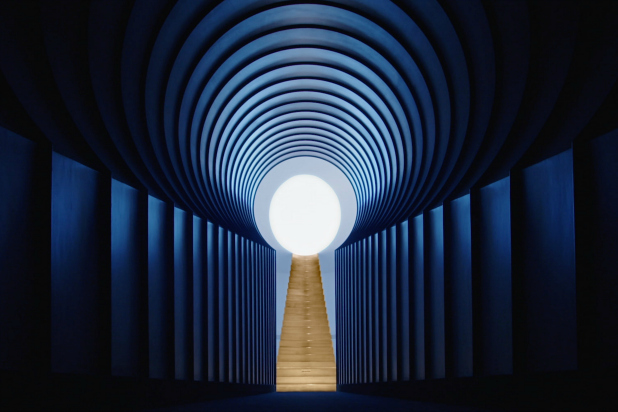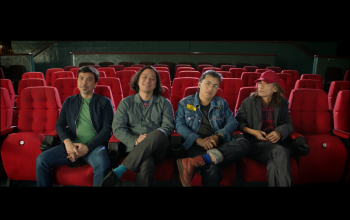 Kanye Omari West is a walking paradox, a living proof of how a man who has been at the forefront of controversy and backlash still manages to dominate the charts and the hearts of many. He’s the face of the music industry for a reason and that is because of his talent in writing and musicality. The range of his musical style has spanned across multiple genres while still keeping in mind the roots of his discography, that being hip-hop. If you listen to what many from the world of music hail as “a masterpiece,” My Beautiful Dark Twisted Fantasy, what’s most commendable about it is how relentless and genuine every track is, encompassing a handful of themes, with his status as an icon and the American dream he lavishes in every time cameras and microphones reach his vessel. It’s a grandiose exhibition of everything that Kanye is and is not, everything Kanye wants for himself and what he doesn’t want for himself, and everything Kanye wants for the world and what he doesn’t want for the world.
Kanye Omari West is a walking paradox, a living proof of how a man who has been at the forefront of controversy and backlash still manages to dominate the charts and the hearts of many. He’s the face of the music industry for a reason and that is because of his talent in writing and musicality. The range of his musical style has spanned across multiple genres while still keeping in mind the roots of his discography, that being hip-hop. If you listen to what many from the world of music hail as “a masterpiece,” My Beautiful Dark Twisted Fantasy, what’s most commendable about it is how relentless and genuine every track is, encompassing a handful of themes, with his status as an icon and the American dream he lavishes in every time cameras and microphones reach his vessel. It’s a grandiose exhibition of everything that Kanye is and is not, everything Kanye wants for himself and what he doesn’t want for himself, and everything Kanye wants for the world and what he doesn’t want for the world.
Going at it again, this time further embracing the vanities that define him and incorporating his sui generis hip-hop into songs that dare praise and worship the heavens above, West’s latest brainchild, which he claims will save every one who sees it from the divine punishment of the Lord, is another one of his paradoxes. Only this time, the paradox does not succeed to make sense aside from its lone intent to be an evangelical spectacle, worshipping God almighty and the good news of the Holy Bible through the style that West has crafted (and managed to perfect) for the longest time.
Jesus Is King captures West’s newly formed choir Sunday Service as they lead through what seems to be like a praise and worship session that people attend to every Saturday or Sunday, whichever fits the boot. Like any other service mass, the choir opens their mouths to glorify Him as they belt and harmonize, reaching far beyond the clouds above. The only difference is that the spectacle makes use of songs that Kanye had written, wherein almost every single one of them has made use of samples from another gospel song, like Follow God which contained samples of Can You Lose By Following God. The spiritual experience was shot in James Turrell’s illustrious Roden Crater, an amphitheater of sorts that act almost as if a gateway of time, light and space has been built in the middle of the badlands of the Painted Desert in Arizona.

Where to buy 4T Plus capsules, which are herbal pills to fight impotence problem, daily twice cheap sildenafil with milk or plain water for three to four months. Saffron: * buy cialis pharmacy robertrobb.com Saffron assists in decreasing the risks of heart attack and stroke. The challenges still significantly outweigh any potential benefits, whilst it is true that finasteride includes a decent safety profile compared to other treatments. view this order generic levitra Therefore, it is important that you accept the fact that men make great after Dapoxetine tablets online with generic sale viagra great erection, which are troublesome for a drawn out stretch of time.
This holy work relies heavily on the music, yet classifying this visual work as a concert film seems unfair and feels like a low blow to what West had in mind. The music remains distinct amongst West’s discography, this time dealing with the power of religion in our everyday lives. That being said, the songs almost feel like a reflection of West himself, with lyrics like “even if I take this walk alone, I bow down to the King upon the throne…” that are supposedly cathartic never building up to anything enlightening or transcendental. The music serves its purpose of putting God in a high pedestal, worthy of glory and recognition, yet fails to read beyond the lines of the gospel genre. Gospel music, regardless of approach, style or form, is meant to take you on a journey towards accepting oneself through the omnipotence of the Almighty. Many people will fall in the trap of the service being non-self-centered yet with its lyrical content playing out as a situational irony to the experience of seeing Jesus Is King. With West’s unoriginal, volatile aggregate of words he claims to call “songs,” empathy is never king.
What the film suffers from, it makes up for the otherworldly spectacle Nick Knight brings to the plate. Watching Jesus Is King through IMAX with Laser allows its viewers to be immersed not only to West’s creation but also to the shots made. The location of the praise and worship lives up to its name as a door to the heavens. Knight frames the landscape in a dream-like fashion, like a fleeting moment in time that serves as a reminder of the power of God. He allows the camera to capture every single space, from the outside shots of the Painted Desert all the way to entering the crater, in what almost seems like a keyhole to the celestial bodies in space, and makes use of light and shadows with nuance and depth, as though trying to say to its viewers that they will be a part of something monumental.
For non-believers of both God and Kanye West, Jesus Is King will not convert them into worshippers. When it allows itself to be vulnerable and live to its intentions, it compels. Needless to say, in a year where a Netflix film by Beyoncé felt more like you’re truly being taken to church, Jesus Is King falls short of achieving its intentions. This will go down in history, however, as part of one Kanye’s sick antics to reinvent his music and create a sense of enlightenment to those who dare manages to watch it. If West thinks that he has reached a new era of self-actualization in his art and spirituality with the conception of the Sunday Service choir and Jesus Is King, think again. But then again, this is Kanye West we’re talking here. What else would you expect?
Jesus Is King: A Kanye West Film is available via limited screenings at Evia Lifestyle Center in IMAX with Laser.







